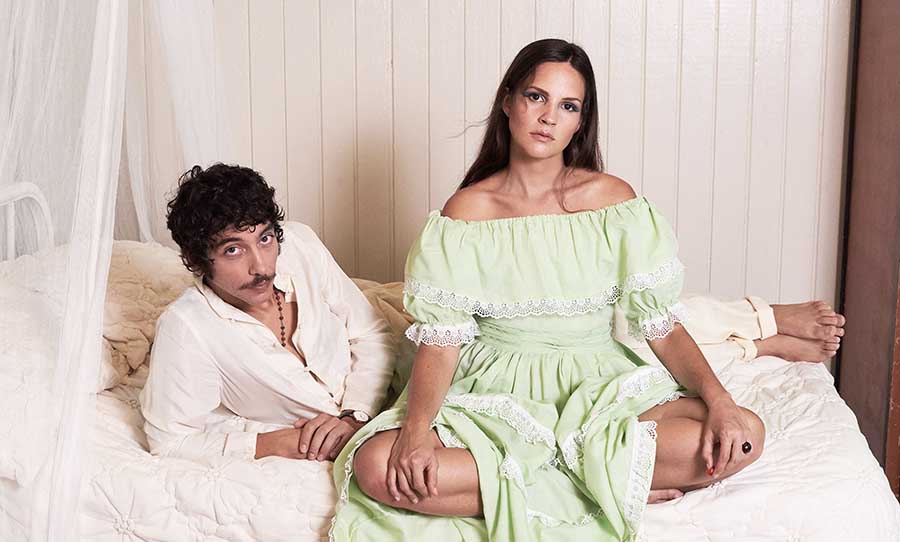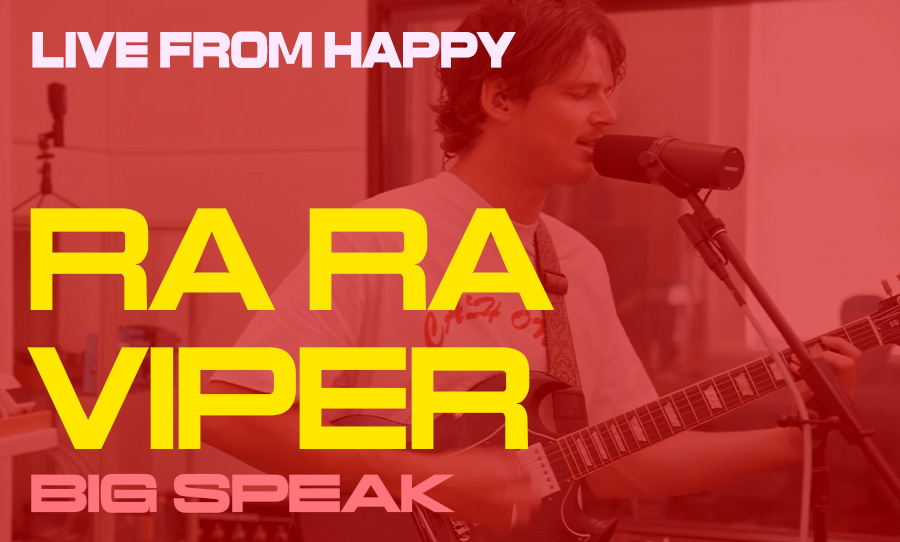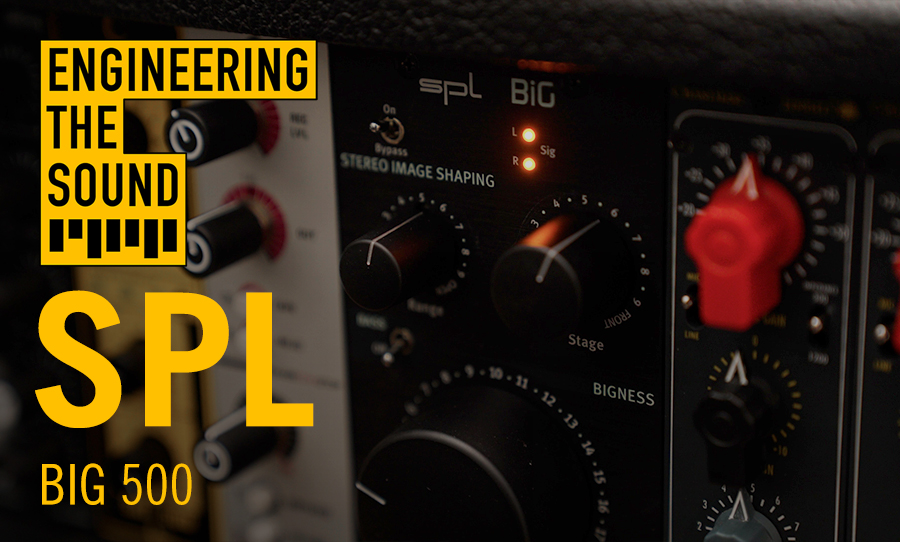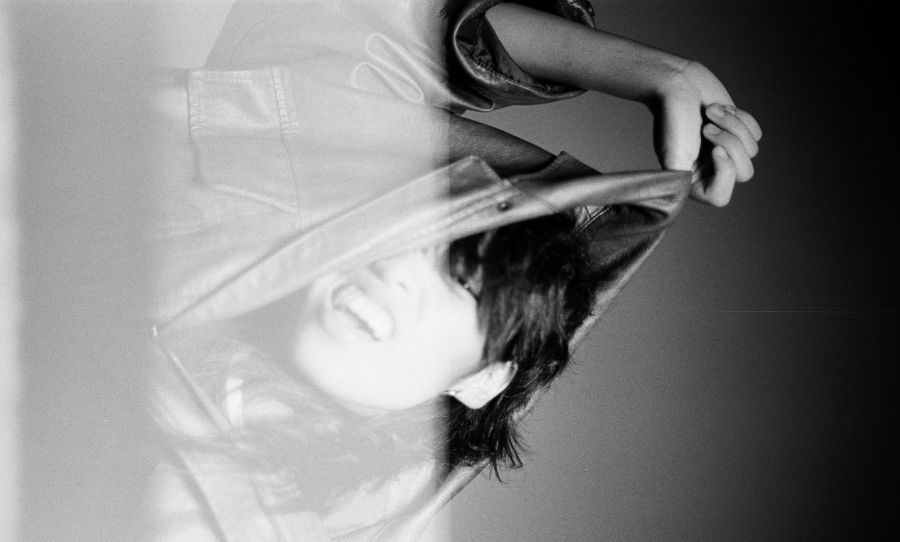Buscabulla are an experimental duo who relocated from New York to their native Puerto Rico following Hurricane María – the country’s worst recorded natural disaster – in 2017. There they would compose their debut album Regresa, surrounded by tragedy and hope in equal measure.
When I spoke to Raquel and Luis Alfredo it was in the midst of another shake-up, but one that gripped the entire world. We realised that what COVID-19 had done to society bore similarities to María and indeed any crisis; amongst the many effects of a disaster, it at once destroyed and relied upon the arts as a cornerstone of life as we know it.
Regresa is out to the world today, accidentally released at an incredibly fitting moment. The album speaks to finding joy amongst the toughest situations and loving a place despite its flaws – a philosophy we could benefit from right now.
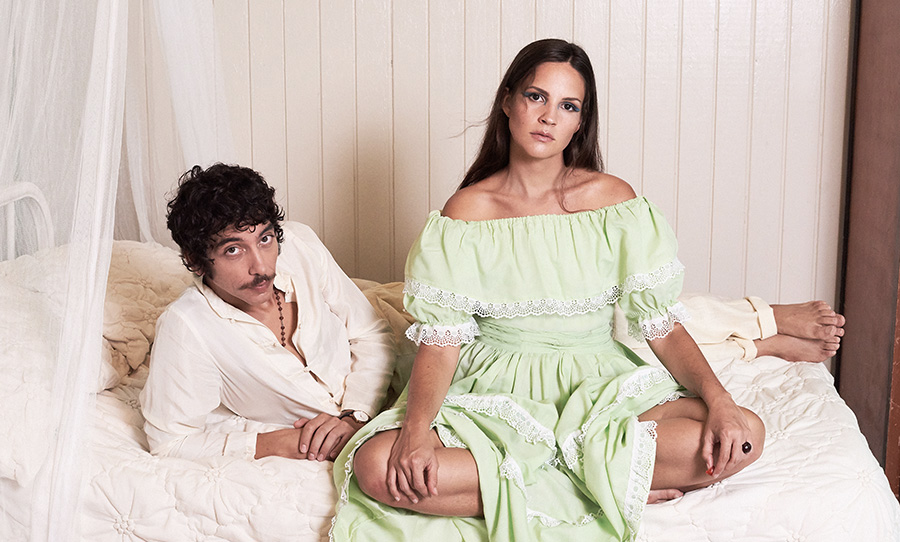
Raquel and Luis Alfredo of Buscabulla speak at length about their debut album Regresa, an album composed within – and released under the shadow of – emergency.
HAPPY: You returned to Puerto Rico after Hurricane María, what was your immediate reaction to what you found there?
RAQUEL: I always say that it’s like that story, The Wizard of Oz, after she wakes up and she’s killed the Wicked Witch of the East, it’s her house and everything’s a mess. It felt that way because we were in New York when it happened – we were planning to move back in September which was when it hit – and we ended up moving back in February, but we came in December to find the house to rent. So it was really weird because we found everybody just being traumatised and over it and you know… Puerto Rico got hit really bad so the houses, the trees, you could tell everything looked really frazzled. So it was really weird, coming back home, looking like it did. It was actually a little bit surreal. And the island hadn’t really recuperated at all, my Dad didn’t have electricity until the end of January – from September. It was nuts! The way that people were living out here, but we were still really excited to be here, we didn’t care that we were in a place that was still in bad shape, we were just so excited to be back home.
HAPPY: How had the arts and music communities in particular been affected?
RAQUEL: I mean, arts and musicians are always the first ones to be affected because everybody lives off gigs, and you know, they probably all work at service jobs. So they were pretty badly hit, I remember talking to friends and they were literally hungry, they didn’t have any money to buy food, it got pretty bad. Right? We had a lot of friends… even people who were doing fine were going hungry because supermarkets, distribution, communication went down across the whole island. Luis wasn’t able to talk to his mum for two or three weeks after the storm hit, we didn’t know. It was really scary. So the art and the music community got hit pretty bad, so we started a non-profit to send grants to a lot of musicians, we started sending $500 micro-grants throughout the year. Emergency grants I think we must have sent maybe 30 or 40, but then as the year progressed we kept giving out to people as things got better. That was our little grain of salt.
HAPPY: You’re right that the arts is one of the first areas to get affected – the same thing is happening right now [with the COVID-19 pandemic]. But it seems to be one of the first communities that rushes in to help too. Your nonprofit is called PRIMA, is that right?
RAQUEL: Yes, Puerto Rican Independent Musicians and Artists.
HAPPY: Is that still active now?
RAQUEL: It is – I don’t know if you heard but we got struck by an earthquake in the southern part of the island in January so… we’ve had quite the year.
HAPPY: From one crisis to the next…
RAQUEL: I know, we had like a 6.8, I mean it was pretty bad. So we started a campaign and then we partnered with the Jazz Foundation of America and got grants to people, so by the time the COVID thing exploded we were left without any resources. We had put all the resources over to the earthquake [laughs]. Now we’re at the stage where… I think we’re waiting for this peak to pass, because this is just the beginning, we don’t know what’s going to come after this. Everybody’s talking about a recession and things getting really weird. Musicians like us, we’re about to put an album out and we were going to tour in July and that’s not going to happen. I mean we’re literally trying to see what kind of economy we’re going to have. We’re filling out a bunch of paperwork to get help from the federal government and that’s probably what our economy is going to be like… we’ve got to figure it out and see what creative ways we can help musicians. There’s going to be a lot of work after this thing.
HAPPY: The album was written in a time of tragedy and crisis but when I listen to the record, it’s very hopeful and celebratory. Is bringing joy to a situation like that important to you?
LUIS: I mean, I think two things are true at once in the music. Maybe thematically there’s a little bit more tension towards the beginning of the record, but we were picking up a lot of the vibes and just being excited to be back home. You know Raquel would go and check out the local carnivals and festivals and stuff, so we were picking up on that a little bit. So towards the beginning of the record there was a little bit of that, but there’s both tension and a lot of joy, but also the situation not being perfect.
RAQUEL: A lot of the lyrics are not happy, though.
HAPPY: I was going to ask that. Do you worry about some of the message being lost on English-speaking listeners?
RAQUEL: I always feel that we try to make it pretty rich sonically, so that the sonics speak for themselves. I could consider myself more of a vibe-type musician than more of a lyricist, it’s not my forte so I do always put more emphasis on how the music feels or the textures or the sonics. Maybe because I have a background in design, I know there’s also a way to communicate emotions in those things. So it’s pretty cool, I really like that people who don’t understand the lyrics like it, because there must be something speaking to them in some way – and then whoever speaks Spanish just gets a bonus because they get to understand what we’re saying. And if you’re Puerto Rican you get a bonus even more because so much of the way that I write lyrics are around the way that we speak Spanish here, in a slang. I actually think it’s pretty cool, I like that people don’t understand it and I like that people like it, even if they don’t understand it. I think that’s a compliment.
HAPPY: I think it is too. I’ve just realised I come from a place where speaking Spanish is much more rare than the US – and obviously Puerto Rico.
LUIS: Sometimes I wonder about that in music at all, you know? People were reached by a lot of music they didn’t understand throughout history, so who knows?
HAPPY: You recorded the album at home, is that right?
RAQUEL: Yes.
HAPPY: You’ve done the expensive studio thing, so what is it about home recording that you prefer?
RAQUEL: I remember us trying to… we’ve been in studios before but first of all time is an issue when you’re in a studio, you’re paying per hour and I think that already affects your mood, you know you can’t really relax and feel that you can try as many things as you want. Then also, I think that once you get used to making music in your little safe space – sometimes I can’t even have Luis in the room. I don’t know if it’s a thing with musicians of our generation, but it seems like people before didn’t have a problem having like 10 people in the room, doing vocals or what have you, but you just feel more comfortable and I feel like weirder things and more interesting things come out [on your own].
Personally I get really self-conscious around other people and around engineers, people thinking that they’re judging you. And I like to take my sweet-ass time, I don’t want anybody waiting on me. But then you clearly have access to amazing gear and people that know a lot in a studio too, so it’s a give and take but I just feel more comfortable at home. I don’t know if Luis feels that way but…
LUIS: Yeah. I know there’s a couple of things where you can get something really great out a studio but nowadays you can pretty much do most of it, to one degree or another, at home.
HAPPY: I agree. That idea of booking huge amounts of studio time and writing an album is really outdated.
RAQUEL: I don’t think there’s that kind of money in music anymore!
HAPPY: Exactly! But also, the availability and the quality of what you can do at home has come so far. How were the drums on the album recorded? I found it really hard to tell if you were using chopped samples or live recorded percussion.
LUIS: There was a mixture of things, there are some sampled drums, there’s some recorded percussion, there’s some drums where I mic myself with one mic and loop the drums – one time I did that.
RAQUEL: You did some on tape too.
LUIS: Yeah, we went to actually one studio, a studio of a friend of ours down here called Spectre Studios, and recorded the drums onto a cassette deck but using a good preamp. So it’s a bunch of different things, I guess searching for a kind of quality or different types of colour in the drums.
HAPPY: Music like yours, or any music that’s heavily influenced by a specific sound like salsa or samba… has the availability of sample packs and soft synths made it harder or easier to properly pay homage to those sounds and cultures? Because you know, not long ago people would have to travel across the world, but now someone from Sydney can download a reggaeton or salsa drum pack.
RAQUEL: I guess you can, but you also have to be pretty educated in what you’re trying to do – but then maybe not, and something interesting could come out. It depends, I mean Latin music, at least tropical music, is pretty complex, at least the way that percussion works. The polyrhythms, there’s a lot of different elements, there’s congas, there’s bongos, there’s a ton of percussion and salsa is made up of literally all of these instruments together. So in a way you can take bits and pieces here and there but you also have to have a general understanding of what it is or where you’re coming from. It’s interesting because in our case, we’re not expert musicians in terms of playing it, but at least for myself I know a lot and I’ve studied a lot, I own a lot of salsa records and I know a lot about the history of it, I understand it enough to pay homage just because of the amount of knowledge I have on it. Then I can make up a kind of concept of how I want to use that and integrate that into what we’re doing.
So it depends! Some people find that they just know about percussion and rhythm, and they just integrate it in their own special way. And maybe in a way, not knowing may be a great way to make something new out of it, because I know that not knowing how to do some things and wanting to make something makes you get really creative in how you achieve it, and you end up having something that’s really new and weird. But I guess nowadays anyone can do anything and I guess that makes me a little bit sad because music is so accessible and so easy to make that you wonder what really makes it unique at all. I guess we’re striving to make something that makes sense or that speaks to people within that, because it’s true, everything has become so accessible and easy.
HAPPY: Great answer. And a last thing because we didn’t mention it before, is there somewhere people can go if they want to help with PRIMA?
RAQUEL: Yeah! They can go to primafund.org – we’re always accepting donations. We’re literally having brainstorming calls to figure out what’s the best way to help the community out here, because there’s so many people in need right now it’s kind of crazy. So if they go to primafund.org we have lots of videos and links for anybody that wants to help the independent music community out here.
Regresa is out now via Domino/Ribbon Music. Stream the album here.
